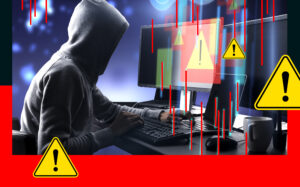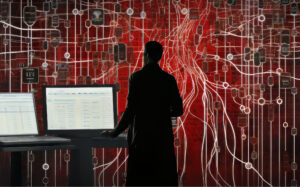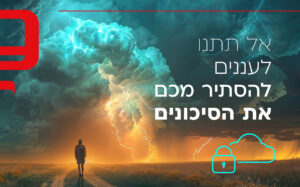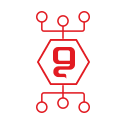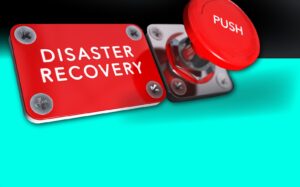A strong earthquake is no reason for a business to go through a shock and lose valuable organizational information. Organizations that did not invest in business survival after similar scenarios - were significantly harmed.
Predicting the exact next quake is a bit problematic; Defending against it is necessary and not complicated.
12 times over five days - this is the interim balance of the earthquakes that hit Israel in the beginning and middle of July.
The tremors caused considerable economic damage to the economy. The concern of experts openly speaks of the fact that the latest tremors are only a prelude to an even stronger earthquake, one that may cause extensive damage and significant damage to property and even to life. If there's one thing these tremors have already proven, it's the fact that it's best not to run into them when you're not ready. If this is true of the house
yours, why wouldn't the same be true for your business?
Background noise?
And indeed, the issue of the earthquakes, which appeared in the main headlines of the news releases, has raised questions in recent days regarding the issue of business information security in both large and small organizations, such as:
Does the DR solution you have chosen for your business include a double power supply enclosure against a strong earthquake?
Unfortunately, earthquakes cannot be accurately predicted, neither in their time nor in intensity, therefore, in the case of particularly strong earthquakes, a standard backup system may not withstand the load and lose the organizational information. The meaning of this is clear: a real possibility of organizational collapse. This has happened many times in the past, because organizations trusted a solution that is defined as "good", instead of looking for the "perfect" solution.
To the servers - peace
So how do you really choose between a "good" solution and a "perfect" solution?
solutions disaster recovery (DR) Using cloud backup provides a wide envelope of protection for corporate information. The problem is that, sometimes, managers define business continuity definitions for an organization, which do not align with particularly severe earthquake damage scenarios. So, in fact, redundancy definitions are defined for the organization at a good level, but not perfect; one that covers a large area, but not total, and one that fails One small one may cause significant damage to its business continuity, as reflected in electricity and fuel outages that disable the regular supply of energy.
TIER 4 - the highest level of redundancy available today, guarantees the business the perfect cover against any Richter scale; The security network that provides an underground backup with a double power supply and a secondary backup system, immediate availability of close to 100% through electrical systems, air conditioning and more. It is, then, two independent voltage feeds, generator backup and continued regular voltage supply, even in the event of an extreme earthquake. The real payoff for the DR solutions is the return of the business to business in a short period of time, after the occurrence of an earthquake, when the information is backed up remotely and encrypted in its entirety, without the organization losing even the smallest piece of information.
A TIER 4 organization is guaranteed that when its owner gets a worried phone call in the middle of the night about an earthquake that just happened, it will send everyone back to a restful sleep. This is the guarantee that even a noisy and moving earth can leave behind a quiet business with a return to routine activity, and with servers that won't feel like they've been through an earthquake.
